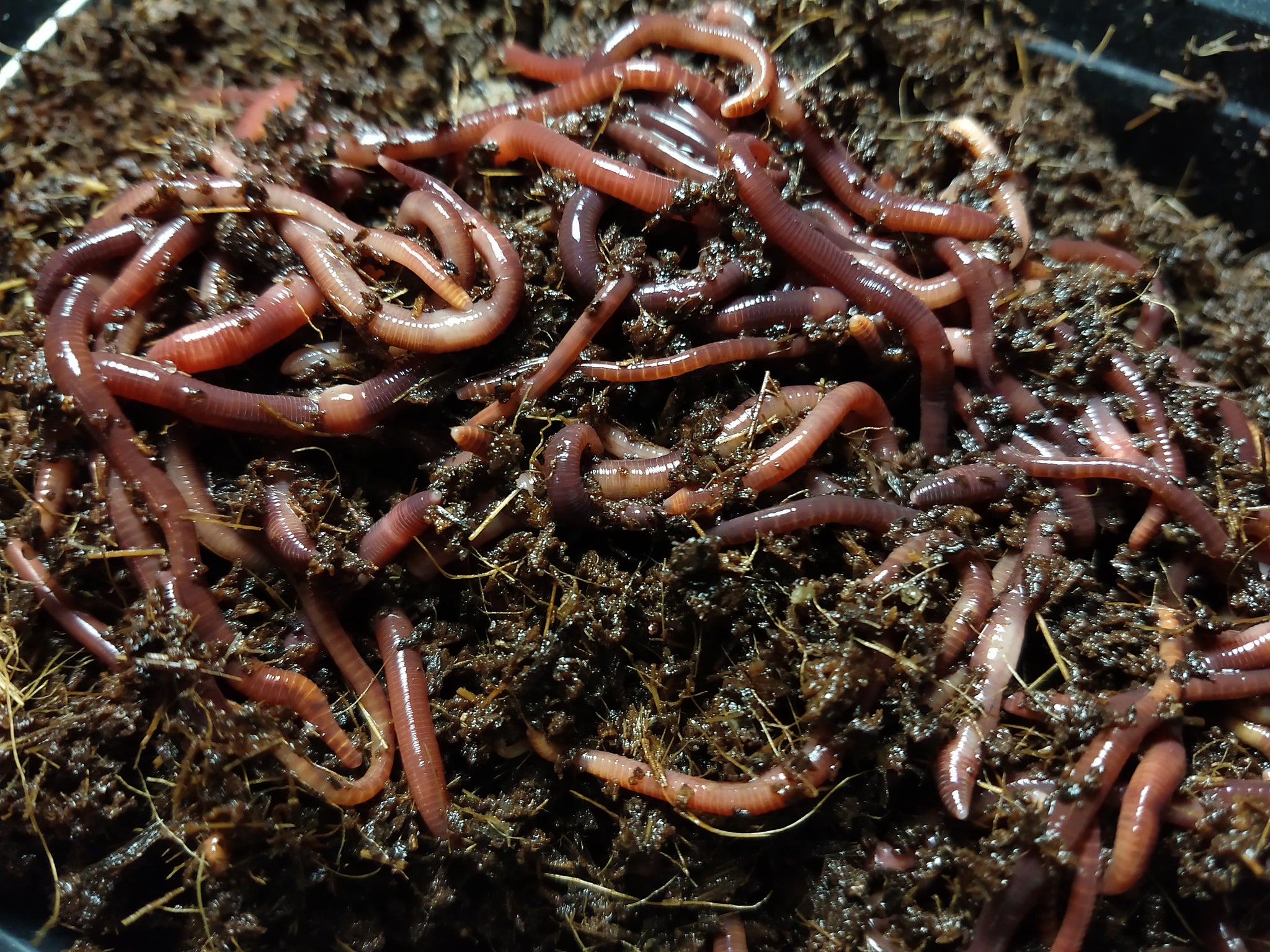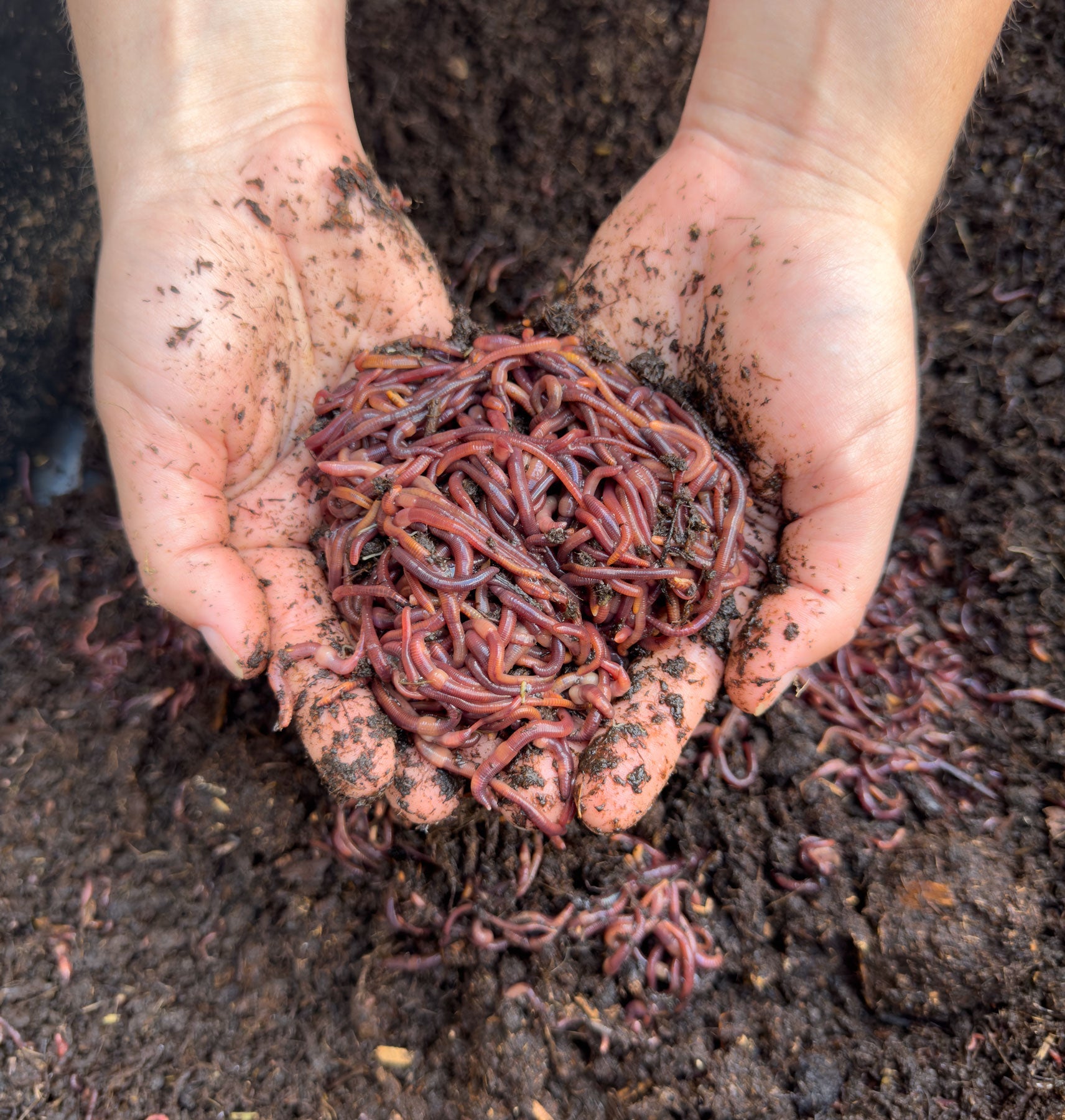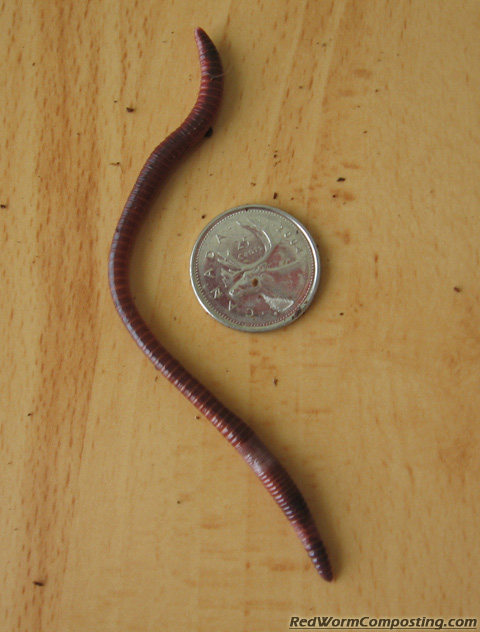Get the Perfect Worms for Your Garden with Red Wiggler Express
Get the Perfect Worms for Your Garden with Red Wiggler Express
Blog Article
Red Wigglers 101: Everything You Need to Know for Thriving Gardens
Red wigglers, or Eisenia fetida, play an essential role in lasting gardening methods, offering as reliable decomposers that convert organic waste into valuable vermicompost. Understanding their environment, dietary preferences, and the myriad benefits they provide can transform your gardening strategy.
Understanding Red Wigglers

Red wigglers flourish in settings rich in organic material and wetness. Red Wiggler Express. They have an one-of-a-kind digestive system that allows them to process food scraps promptly, excreting castings that are loaded with necessary nutrients such as nitrogen, phosphorus, and potassium. These castings improve soil structure, improve water retention, and foster beneficial microbial activity, all of which add to durable plant health
Furthermore, red wigglers can survive in diverse conditions, making them versatile to different gardening practices, including interior and outside composting systems. Their capacity to take in big amounts of natural waste day-to-day placements them as important allies for both home gardeners and industrial growers. By incorporating red wigglers into gardening efforts, one can substantially boost dirt fertility and support lasting horticulture techniques.
Perfect Habitat for Red Wigglers
Producing an ideal environment for red wigglers is essential for maximizing their composting capabilities and total health and wellness. Red wigglers thrive in damp, dark, and well-aerated habitats, which carefully resemble their natural environments in ground cover and rotting raw material. An ideal habitat needs to give a temperature level array between 55 ° F and 77 ° F(13 ° C to 25 ° C), as extreme temperature levels can emphasize or hurt the worms.
The bed linen material, such as shredded newspaper, cardboard, or coconut coir, need to be kept moist however not overly damp, as extreme wetness can bring about anaerobic problems detrimental to worm health. In addition, a pH degree between 6.0 and 7.5 is optimal, making sure a balanced environment.
Correct aeration is just as vital; it enables oxygen circulation and protects against the buildup of unsafe gases. A container or container developed for vermicomposting should have water drainage holes to remove excess wetness and promote air movement. Regular surveillance of these conditions is important for keeping a prospering red wiggler population, ultimately boosting their performance in damaging down organic waste and improving garden soil.
Dietary Requirements and Preferences

Red wigglers show particular preferences; they are especially fond of softer, disintegrating products over tougher or more coarse compounds. It is vital to avoid feeding them citrus peels, onion, and garlic in big quantities, as these can be damaging. In addition, meat, dairy, and oily foods ought to be excluded, as they can bring in parasites and develop unpleasant smells.
(Charlotte NC Worms For Sale)To keep optimum health and wellness, a well balanced mix of environment-friendly and brownish materials is advised. Green products, such as veggie scraps, offer nitrogen, while brownish materials, like cardboard and dried leaves, supply carbon. Monitoring the wetness material and ensuring a constant food supply will additionally enhance their growth and composting abilities. By dealing with their dietary needs, gardeners can promote a flourishing population of red wigglers in their garden compost systems.
Advantages of Using Red Wigglers
The impressive advantages of utilizing red wigglers in horticulture prolong much past their role in composting. These functional microorganisms add significantly to dirt health and wellness, enhancing nutrient availability and promoting microbial task. By freshening the dirt as they tunnel, red wigglers improve water drainage and root penetration, developing an optimum atmosphere for plant development.
Moreover, red wigglers are effective recyclers of organic waste, transforming it into nutrient-rich spreadings that function as an excellent natural plant food. These castings contain helpful bacteria and important nutrients, such as nitrogen, phosphorus, and potassium, which are essential for plant development. The slow-moving release of nutrients from worm spreadings makes sure a consistent supply, reducing the threat of nutrient leaching and promoting lasting gardening methods.
Furthermore, the visibility of red wigglers can assist subdue soil-borne plant conditions. Their digestion procedures create compounds that prevent harmful microorganisms, therefore boosting plant health. Ultimately, using red wigglers promotes a more lasting gardening method by minimizing dependence on chemical fertilizers and advertising a closed-loop system, where waste is transformed into useful sources. Generally, integrating red wigglers into horticulture methods provides a plethora of ecological and agricultural benefits.
(Hickory NC Worms For Sale)
Composting With Red Wigglers

To initiate a successful vermicomposting system, select an appropriate container with correct air flow and drainage. The perfect setting for red wigglers consists of a moist, dark setting with temperature levels between 55 ° F and 77 ° F. Begin by layering shredded paper, cardboard, and Lake Hickory Bait food scraps, guaranteeing a balanced mix of carbon and nitrogen-rich materials.
Red wigglers prosper on veggie peels, fruit scraps, coffee premises, and eggshells, while avoiding meat, dairy, and oily foods that can attract pests. Consistently check wetness degrees; the bedding should perspire however not soaked. Harvest worm castings every few months by separating the worms from the compost, which can after that be utilized directly in gardens or stored for later usage.
Carrying out vermicomposting not just reduces land fill waste however likewise improves garden soil, promoting healthy plant development and sustainable horticulture techniques. Welcome this green technique to enhance your horticulture endeavors.
Verdict
In summary, red wigglers are important microorganisms for boosting yard performance via efficient composting. Their specific environment needs, nutritional preferences, and substantial advantages contribute to sustainable horticulture methods. By making use of red wigglers, gardeners can considerably enhance dirt top quality and nutrient accessibility, fostering healthier plant growth. Embracing the technique of vermicomposting not just sustains waste reduction however likewise promotes an environmental balance within yard ecological communities, eventually resulting in thriving and resilient yards.
Report this page